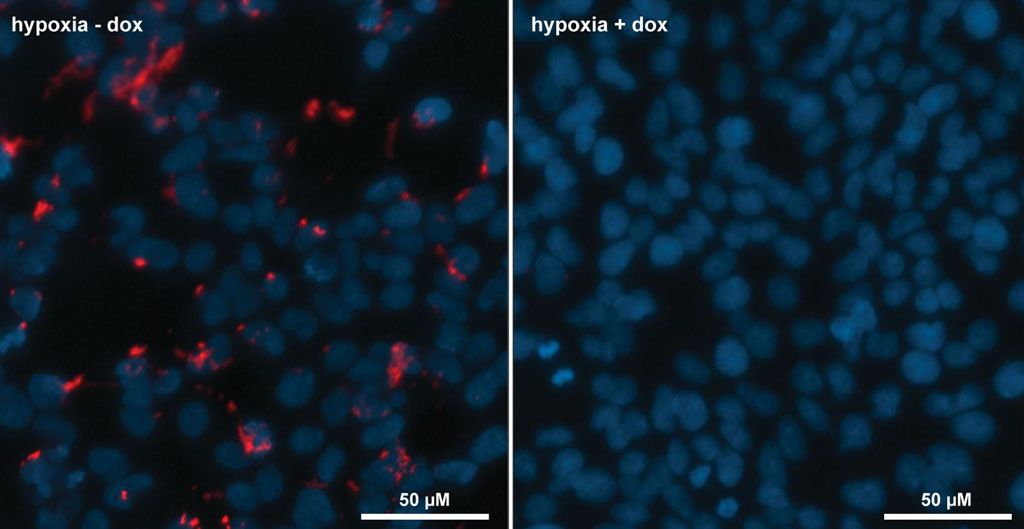Gene therapy techniques were used to insert a peptide into cultures of human cancer cells that blocked their ability to use the enzyme Hypoxia-inducible factor-1, a heterodimeric transcription factor that enables cell survival under low oxygen conditions by altering the transcription of over 300 genes.
Hypoxia inducible factor-1 (HIF-1) is a heterodimeric transcription factor that acts as the master regulator of cellular response to reduced oxygen levels, thus playing a key role in the adaptation, survival, and progression of tumors. There is significant evidence that inhibition of HIF-1 would be beneficial for cancer therapy, since tumor cells must thrive in a microenvironment characterized by lack of oxygen. In previous work, investigators at the University of Southampton (United Kingdom) discovered a cyclic hexapeptide (cyclo-CLLFVY) that inhibited the HIF-1alpha/HIF-1beta protein–protein interaction in vitro and prevented HIF-1-mediated hypoxia-response signaling in cells. This cyclic peptide was identified by screening a library that contained more than 3.2 million compounds.
With a view to demonstrating the potential for encoding the production of a therapeutic agent in response to a disease marker, the investigators engineered human cells with an additional chromosomal control circuit that conditionally encoded the production of the cyclic peptide HIF-1 inhibitor. They then demonstrated the conditional production of the HIF-1 inhibitor in response to hypoxia, and its inhibitory effect on HIF-1 dimerization and downstream hypoxia-response signaling.










Comments are closed.